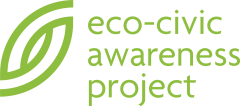APDNE is a local public authority responsible for planning and coordinating various educational and training activities from preschool to secondary education in Antalya Province, which encompasses 5 central and 14 provincial districts. The Directorate oversees 19 District National Education Directorate offices, 369 high schools, 85 vocational high schools with various branches, 563 primary schools, and 702 kindergartens. The main
objective is to provide education aligned with modern principles and advancements, aiming to nurture individuals who adhere to EU norms, adapt
to diverse living conditions, and embody secular, democratic values while promoting intelligence and science. APDNE also places importance on
preserving cultural heritage, raising historical awareness, and respecting human rights and the environment. The Directorate is proactive in
promoting lifelong learning through diverse activities.
We currently have more than ten ongoing Erasmus+ KA220 Projects.
- The Directorate holds Erasmus accreditation both in the fields of School Education and Vocational Education
- The ESTELLA Project aims to enhance environmental awareness and responsibility by allowing students to explore, analyze, and
communicate about the environmental values outside their schools. - The iSchool Project aims to integrate and preserve European cultural heritage within education.
- The hVET Project takes a groundbreaking step by integrating the hybrid teaching model into vocational education and training (VET). This
innovative approach combines the best features of online and in-person education, aiming to prepare for the post-pandemic era. - The IIExVET project focuses on developing a survey aimed at measuring excellence levels in vocational education and training (VET) across
the European Union (EU). This assessment tool will help VET centers across the EU analyze their performance from an objective perspective,
identify the steps needed to achieve excellence, and reach the EU’s quality and excellence standards in vocational education. - The S.T.E.P.S (STEM Teaching and Education Platform for Students) project is a tangible and sustainable initiative aimed at promoting equality and inclusivity in access to STEM and robotics education.
